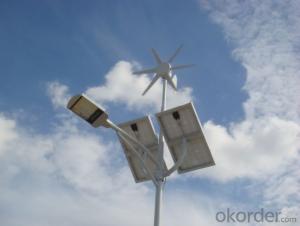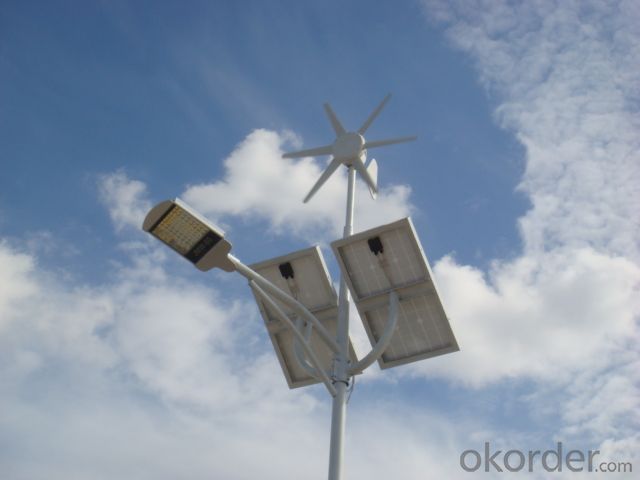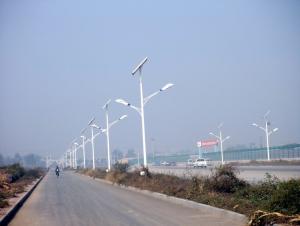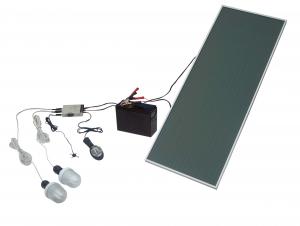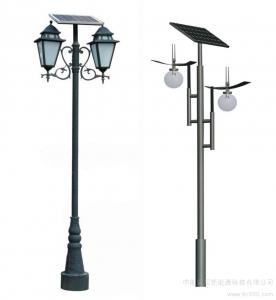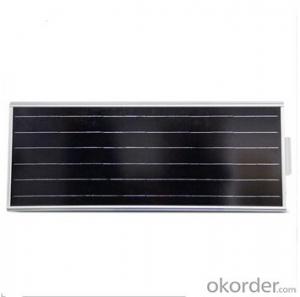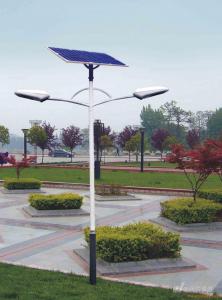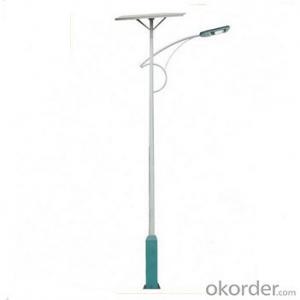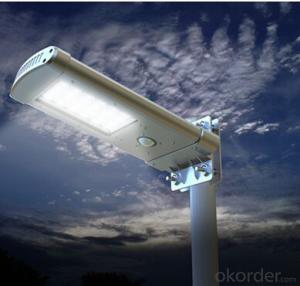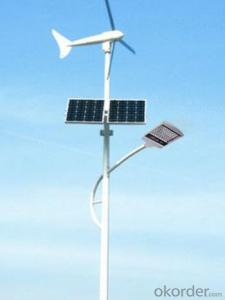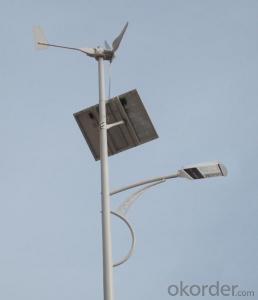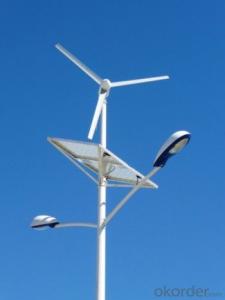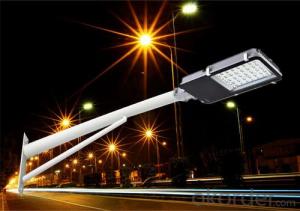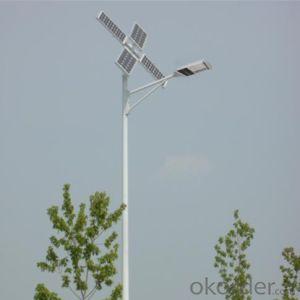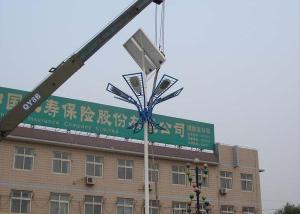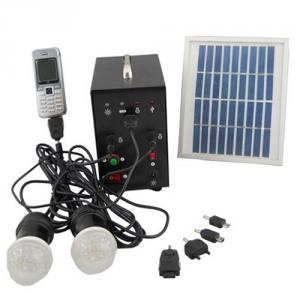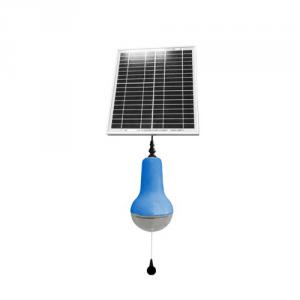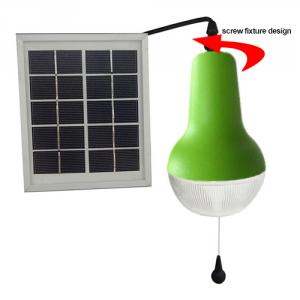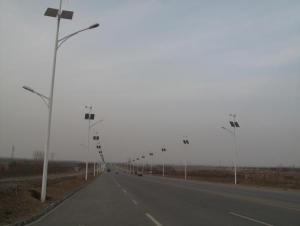Wind-Solar Hybrid Street Lights JMTF-004 with Solar Light Battery
- Loading Port:
- Shanghai
- Payment Terms:
- TT OR LC
- Min Order Qty:
- 10 pc
- Supply Capability:
- 10000 pc/month
OKorder Service Pledge
Quality Product, Order Online Tracking, Timely Delivery
OKorder Financial Service
Credit Rating, Credit Services, Credit Purchasing
You Might Also Like
| No. | Part | Description | lifetime | Guarantee |
| 1 | Lamp | 30-60W, imported LED chip 140-150lm/w, 4000-5500K. ( with invention patent) | 100,000hrs | 5years |
| 2 | Wind power generator | 1.2 grade wind can start the wind generator | 15years | 2years |
| 2 | Controller | digital programmable intelligent controller, switch on/off by light | 5years | 2years |
| 3 | Solar Panel | monocrystalline silicon or polycrystalline silicono(ptional), high conversion efficiency | 20years | 5years |
| 4 | Battery | High quality top brand maintenance-free solar storage gel or lead-acid battery, over charge and over discharge protection. | 8years | 3years |
| 5 | Pole | 4-12m high, zinc-plated steel, color optional | 20years | 10years |
| 6 | Accessories | Panel bracket, base anchor bolts, battery box, cables, fasteners etc. | 10years | 3years |
Remark:
| 1. work temperature: -30°C~+65°C. |
| 2. wind resistance:≥150km/h. |
| 3. protection grade: IP 65. |
- Q: Can solar lights be used during power outages?
- Indeed, solar lights are capable of usage in moments of power outages. As solar lights derive their energy from sunlight, they operate autonomously from the main power system. Therefore, even in situations where electrical supply is absent, solar lights persist in their functionality, granting illumination. Typically, solar lights accumulate the energy they produce throughout the day in rechargeable batteries, subsequently employed to empower the lights throughout the night or in the event of power outages. Hence, these lights present themselves as a dependable and environmentally friendly alternative for emergency lighting during blackouts or any other disturbances in the power network.
- Q: Can solar lights be used in all weather conditions?
- Solar lights are designed to be weather-resistant and can typically withstand various weather conditions, including rain, snow, and heat. However, extreme weather conditions such as heavy storms or blizzards might affect the performance and charging capability of solar lights. Therefore, while solar lights are generally suitable for all weather conditions, it is advisable to consider the specific climate and weather patterns of your location before making a purchase.
- Q: Are solar lights affected by electromagnetic interference?
- Solar lights are generally not affected by electromagnetic interference (EMI). This is because solar lights do not rely on any electrical connections or power supply from the grid. They operate independently using solar panels to harness sunlight and convert it into electricity, which is then stored in batteries for later use. EMI is a phenomenon that occurs when electromagnetic radiation from various sources interferes with the normal functioning of electronic devices. It can cause disruptions, malfunctions, or even complete failures in these devices. However, solar lights are not susceptible to such interference because they do not have any electronic components that can be affected by EMI. Unlike traditional electric lights, solar lights do not require any wires or cables for operation. This means they are not connected to any electrical circuits that could be affected by electromagnetic interference. Solar lights are designed to be self-contained and independent, utilizing solar energy for their operation. However, it is worth noting that certain solar-powered devices that incorporate electronic components, such as solar-powered security cameras or motion sensors, may be susceptible to electromagnetic interference. In such cases, manufacturers may implement measures to mitigate the impact of EMI, such as shielding or filtering techniques. Overall, solar lights are generally not affected by electromagnetic interference due to their self-contained nature and lack of reliance on external power sources or electrical connections.
- Q: Are there solar lights for outdoor horse arenas or riding arenas?
- Yes, there are solar lights specifically designed for outdoor horse arenas or riding arenas. These lights are designed to provide sufficient illumination for safe riding and training activities, while also being energy-efficient and environmentally friendly. They are typically equipped with solar panels to harness sunlight during the day and store the energy in built-in batteries for use during the night.
- Q: Can solar lights be used for outdoor yoga or fitness sessions?
- Yes, solar lights can be used for outdoor yoga or fitness sessions. They provide a sustainable and environmentally friendly source of light, allowing individuals to practice yoga or engage in fitness activities safely and comfortably even during the evening or nighttime.
- Q: Are solar lights suitable for illuminating gardens or flower beds?
- Gardens or flower beds can be illuminated using solar lights, which are a suitable option for this purpose. These lights are powered by sunlight, eliminating the need for electricity or wiring, making them an excellent choice for outdoor lighting. Furthermore, their installation is simple, and they can be placed anywhere in the garden or flower beds to provide a gentle and soothing glow that enhances the beauty of the surroundings. Solar lights are also available in a variety of styles and designs, allowing them to seamlessly blend with any garden decor. Moreover, they can be easily moved around to accommodate any changes in landscaping. In addition to their practicality and attractiveness, solar lights are energy-efficient, environmentally friendly, and cost-effective since they do not require ongoing electricity costs. Overall, solar lights offer a practical and appealing solution for illuminating gardens or flower beds, enhancing their aesthetics and creating a warm and welcoming atmosphere.
- Q: What type of batteries are used in solar lights?
- The most common type of batteries used in solar lights are rechargeable lithium-ion batteries.
- Q: Are solar lights resistant to chemical exposure?
- Solar lights are generally resistant to chemical exposure, but the extent of their resistance may vary depending on the specific materials used in their construction. Solar lights are typically designed to withstand outdoor conditions, including exposure to rain, heat, and sunlight. However, they may not be completely impervious to all types of chemical exposure. Most solar lights have a protective coating or casing that helps protect them from damage caused by chemicals, such as those found in fertilizers or cleaning solutions. This coating or casing is typically made of durable materials like plastic or metal that can withstand mild chemical exposure. That being said, it is important to note that excessive or prolonged exposure to certain chemicals may still cause damage to solar lights. Harsh chemicals or solvents, such as strong acids or alkalis, can potentially corrode or degrade the materials of the solar lights, leading to reduced functionality or even complete failure. Therefore, it is advisable to avoid direct contact with chemicals or to clean solar lights using only mild, non-abrasive cleaners. In summary, while solar lights are generally resistant to chemical exposure, it is important to be mindful of the types and strength of chemicals that they come into contact with. Taking appropriate precautions and using mild cleaning agents will help ensure the longevity and functionality of solar lights.
- Q: Do solar lights have adjustable color options?
- No, solar lights typically do not have adjustable color options.
- Q: Can solar lights be operated manually?
- No, solar lights cannot be operated manually as they rely on solar energy to charge their batteries and power the lights.
Send your message to us
Wind-Solar Hybrid Street Lights JMTF-004 with Solar Light Battery
- Loading Port:
- Shanghai
- Payment Terms:
- TT OR LC
- Min Order Qty:
- 10 pc
- Supply Capability:
- 10000 pc/month
OKorder Service Pledge
Quality Product, Order Online Tracking, Timely Delivery
OKorder Financial Service
Credit Rating, Credit Services, Credit Purchasing
Similar products
Hot products
Hot Searches
Related keywords
